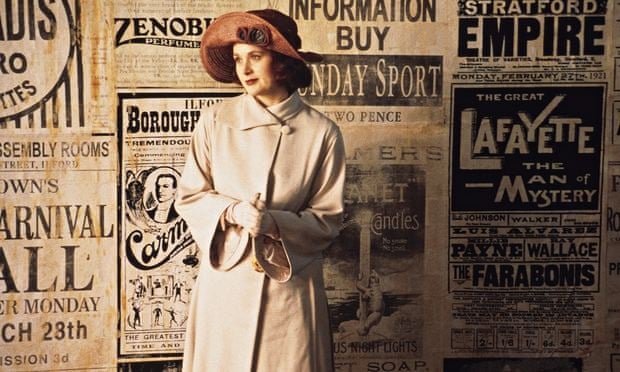
One of the best decisions I ever made as an author was to keep a writing diary, a record of each day’s advances, along with plans, thoughts and queries about my current novel-in-progress. Surveying this at the end of a project provides a fascinating vision of the evolution of a book – though I invariably find that it’s a catalogue of complaints (“horrible day”, “appalling day”, “realised that most of what I wrote last week was rubbish”), relieved only rarely by moments of insight and sweaty euphoria: “Think I’m getting there at last, thank Christ!”
These journals are always substantial, but at more than 170,000 words my Paying Guests diary is only slightly shorter than the book itself, and the process it documents was more than usually knotty. That slightly perplexes me now, for the novel’s conception was straightforward. Having set my two previous books in the 1940s I thought I’d venture back a couple of decades, and in the pursuit of information about British domestic life in the interwar years I began looking at murder cases; I went to them purely, really, for the sake of their incidental detail. But two cases caught my attention, that of Edith Thompson and Frederick Bywaters in 1922, and of Alma Rattenbury and Percy Stoner in 1935 – both cases involving a husband, his wife and her young male lover, in which a moment’s reckless violence had fatal consequences for almost everyone concerned.
More
These journals are always substantial, but at more than 170,000 words my Paying Guests diary is only slightly shorter than the book itself, and the process it documents was more than usually knotty. That slightly perplexes me now, for the novel’s conception was straightforward. Having set my two previous books in the 1940s I thought I’d venture back a couple of decades, and in the pursuit of information about British domestic life in the interwar years I began looking at murder cases; I went to them purely, really, for the sake of their incidental detail. But two cases caught my attention, that of Edith Thompson and Frederick Bywaters in 1922, and of Alma Rattenbury and Percy Stoner in 1935 – both cases involving a husband, his wife and her young male lover, in which a moment’s reckless violence had fatal consequences for almost everyone concerned.
More
No comments:
Post a Comment